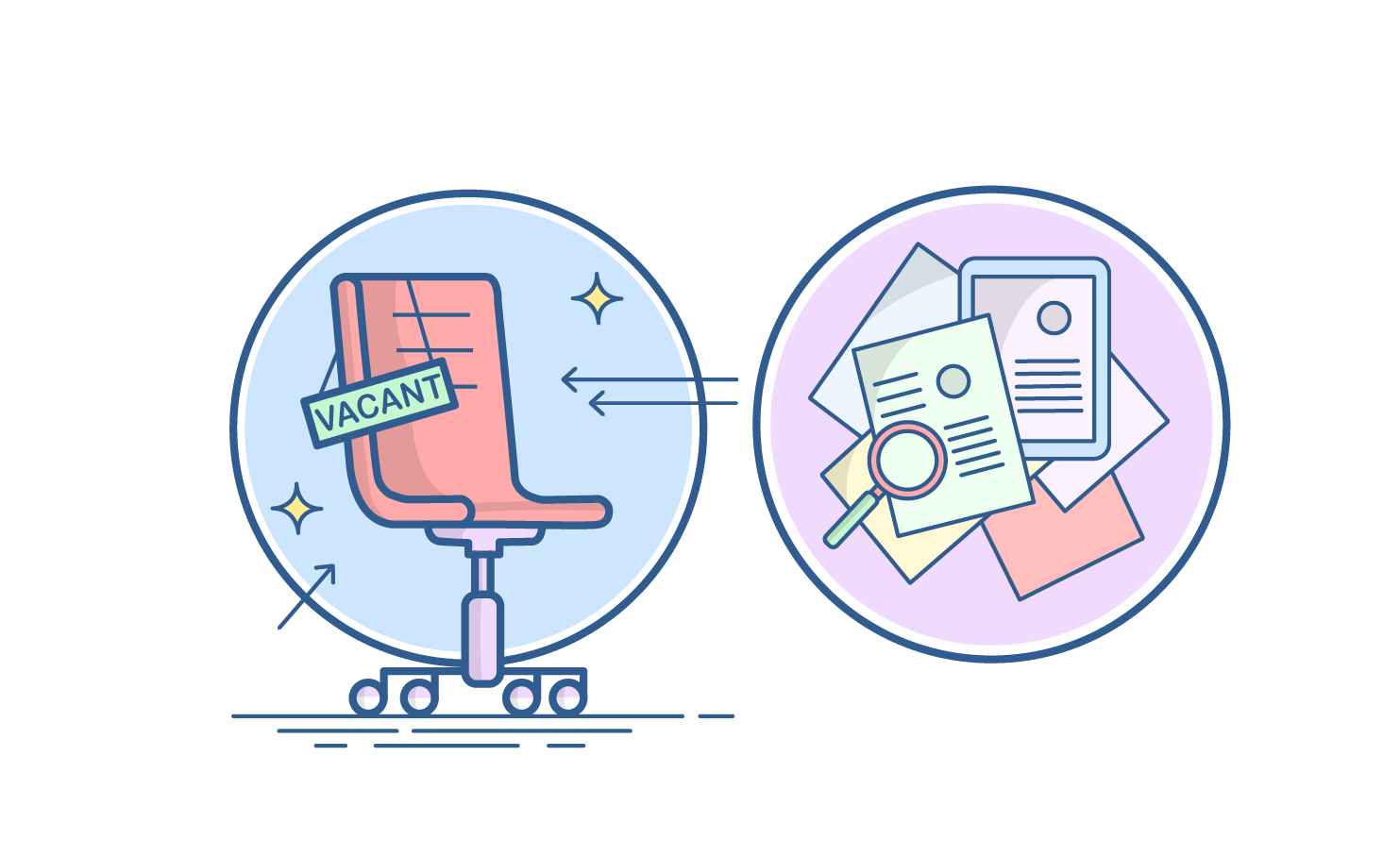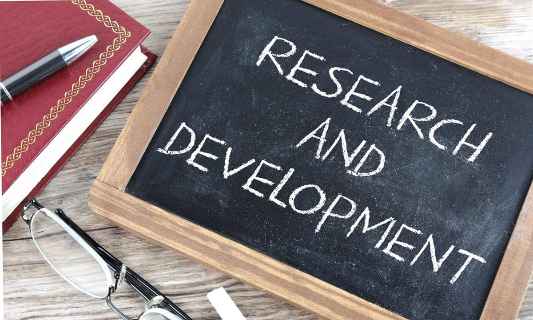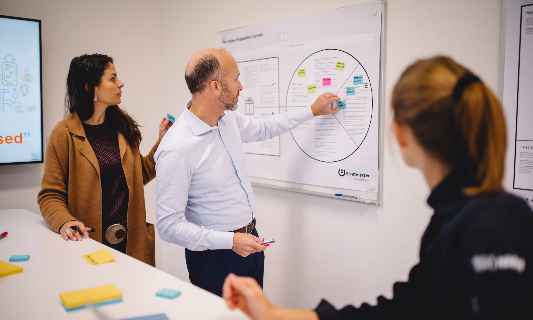R&D Professional
Who Are R&D Professionals?
A research & development (R&D) professional is involved with the creation of new products or understanding the scientific aspects of the relevant field either to pave the way for future applications or simply for the sake of collective knowledge. As an R&D specialist, you have to use your expertise to solve problems in your field, which can be anything from astronomy to footwear designing.
As an example of the kind of work you would be doing, a particular material, such as a semiconductor, used in developing chipsets for a computer giant has failed to perform to its design standards, and the production has been called off. Your task would be to break down the cause of failure and find a feasible alternative for the material.
Roles & Responsibilities
Identifying project parameters such as goals, research methods, and variables. For example, your enterprise/laboratory/industry wants to roll out a new version of a product with enhanced features that tackle previous problems. Your first role here would be to define project parameters related to its scientific aspects.
Investigating problems. Carrying on with the previous example, your second role would be to understand the problem the previous versions encountered, and find a fix.
Planning systems, structures, or equipment required in a rudimentary or simplistic fashion. The devices and processes you use during the development phase must have simpler features which can be scaled later.
Performing tasks/projects of a wider scope. Apart from the engineering and scientific aspect of your project, you will also be responsible for assuring quality, and time and cost effectiveness of the project or a smaller portion of the project.
Preparing reports, papers, presentations, new proposals, etc. presents papers at technical meetings. Your findings must be recorded for engineers and technicians to work on.
Peer reviewing. R&D professionals are partly scientists. And scientists work on peer review, which is nothing but the evaluation of professional, often scientific, work.
Take the Mentoria career assessment test, to find out how well-suited you are as a R&D Professionals.
Discover your Ideal future
Get expert guidance and mentorship towards your perfect fit.
What Skills Will I Need To Have To Do This Job Well?
As exciting as this sounds, there are some things you’ll need to learn to do the job right:
TECHNICAL SKILLS
Since an R&D professional can belong to any sector, they must be equipped fully with knowledge of their sector, and sometimes beyond. For example, you are an R&D engineer in an aerospace lab. You must be thorough with all aerospace concepts. You must also be thorough at performing any kind of experiment at any scale. For this, you need to make sure you have performed extremely well in your academics.
SCIENTIFIC CURIOSITY
Although you might not need hard sciences (physics, chemistry or biology) to be an R&D professional, the methodologies you will use are still scientific in nature. Therefore you must have a strong sense of scientific curiosity.
CRITICAL THINKING
From the reason mentioned above, it follows that you must be skilled at reasoning and logic. This is essential because you will be solving critical issues in your field that can revolutionise the way it works.
What Will My Workplace Look Like?
Your work life will vary depending on your field of work.
As an R&D professional, you will have dedicated spaces called R&D facilities to work in. These can be inside a manufacturing unit, a science laboratory, a university, and others. Your hours depend on the project at hand and the sector you are working for. However, your working hours are usually fixed.
You might be working in physics, biology, chemistry, biotechnology, pharmaceuticals, automotive, space technology, IT, business & finance, and other research-intensive fields.
As a professional in this career, your work would mostly be restricted to your facility. But you will travel to conferences and lectures when necessary.
What Is My Scope For Career Growth As A R&D Professionals?
There are several types of research and development professionals. These include R&D engineers and scientists. You can begin with an entry-level job such as a technician, a junior engineer, or a junior scientist. Experienced professionals and doctorate holders stand a better chance at getting promoted. You could even get offered academic roles depending on your theoretical expertise and education.
The highest ranks in R&D are occupied by the director of research, something you can be vying for in the future as you bring out your maximum potential.
Thinking of a career as a R&D Professionals? Take the Mentoria assessment test & talk to our career counsellors to get personalized step-by-step guidance for your future career path.
How Much Will I Get Paid?
The exact number will depend on where you’re working, your education, skill set and internship experience. But we can give you a general idea.
A R&D professional in India earns around Rs. 4,00,000 per annum (entry-level) to Rs. 8,50,000 per annum (senior) and beyond.
Okay, I'm sold. This is amazing

STEP 1: Class XI-XII/Junior College
Take up the subjects relevant to your field of interest. For example, take up science and mathematics if you want to become an engineering R&D professional.

STEP 2: Entrance Exams
Write an entrance exam that will get you admitted to a course in the field you have picked. This can be engineering or science or other disciplines.

STEP 3: Graduate Degree
You can take up Bachelors of Technology, Bachelors of Science, or the relevant course. Make sure to excel in academics – theory and practical.

STEP 4: Internship
You must truly excel in your academics. For this, you can choose to take up an internship related to your field. Pick and choose the facility based on its reputation and experience in research.

STEP 5: Post Graduate
Engineering R&D generally requires a Masters degree, such as Masters of Technology. You can also go for a doctoral degree, such as a PhD, in your field of interest. However, a PhD is a must for science-related R&D careers.

STEP 6: Land a Job
You can now use your academic excellence and your three degrees to bag a job in this exciting and critical field.
Congratulations, you are now officially a Research & Development professional!
Sign Up for Mentoria - India’s Most Reliable Career Discovery Platform
Mentoria promises to handhold you during your career discovery journey - from the time you sign up until you get into a career you love.
Discover your Ideal future
Get expert guidance and mentorship towards your perfect fit.


